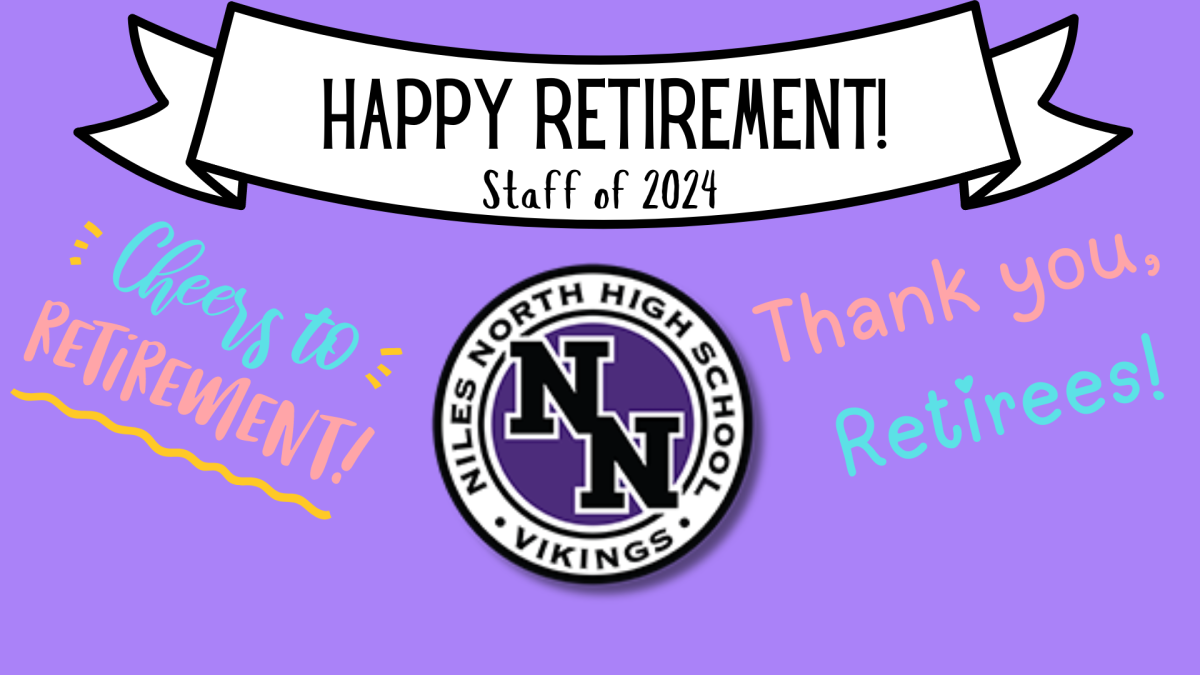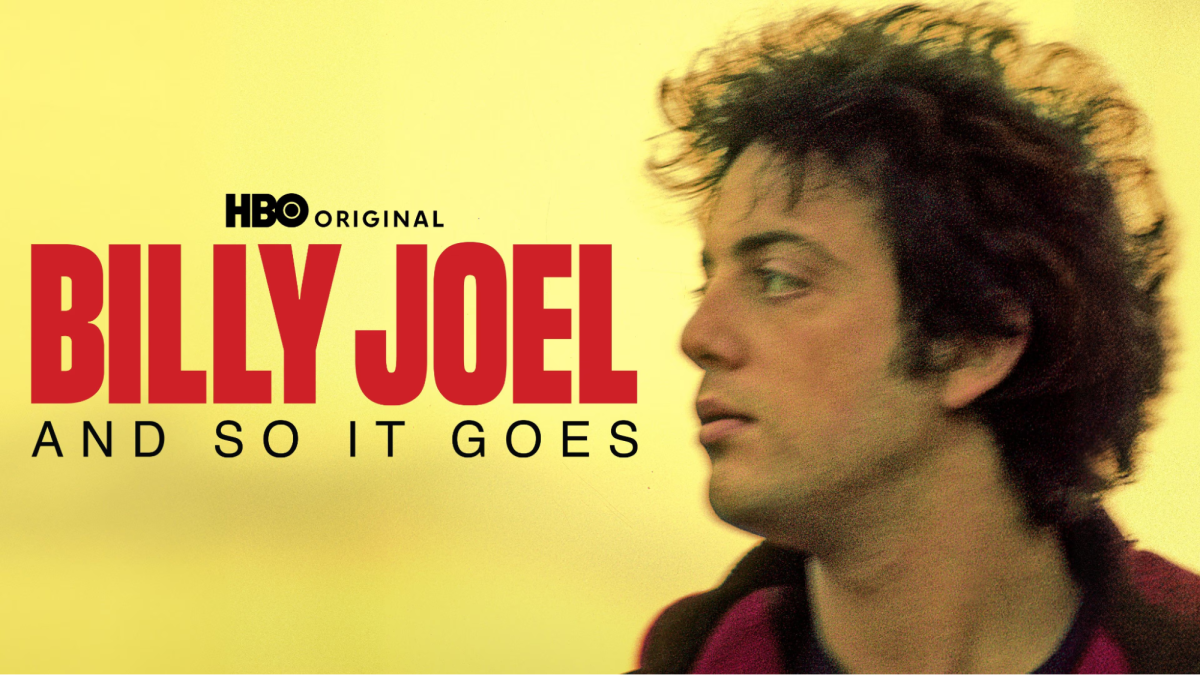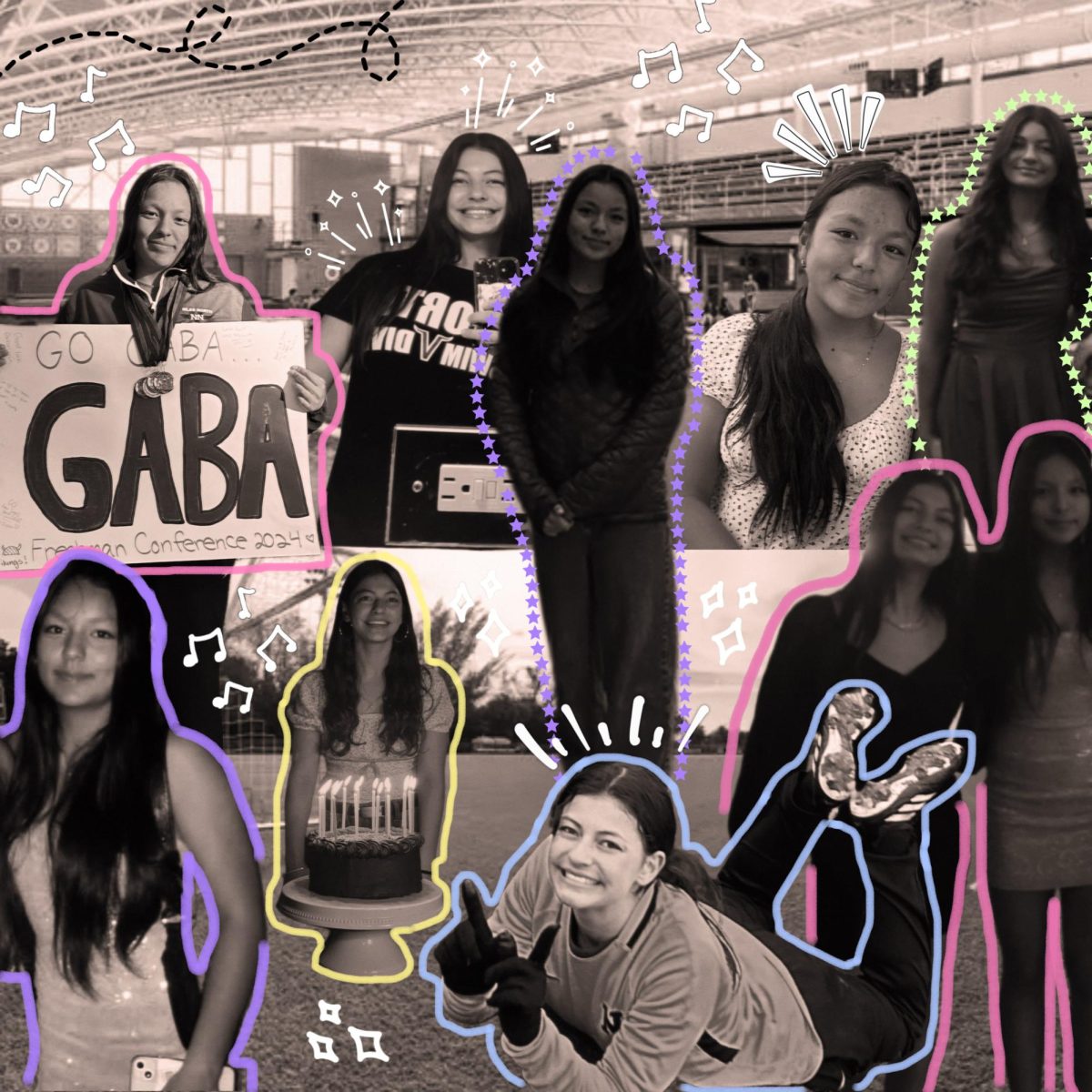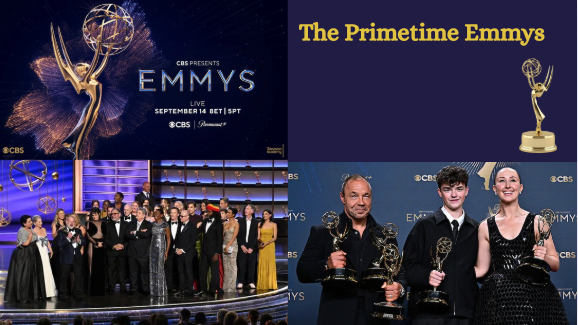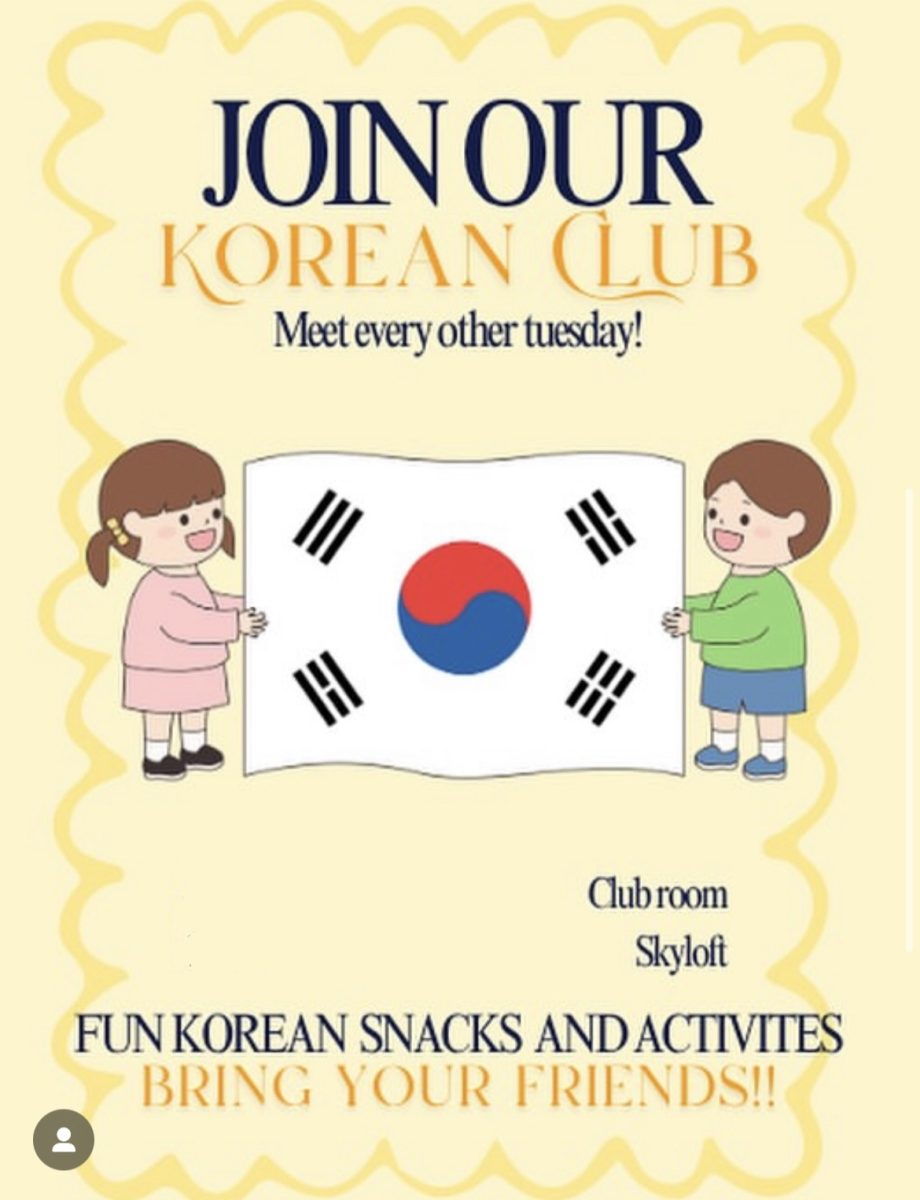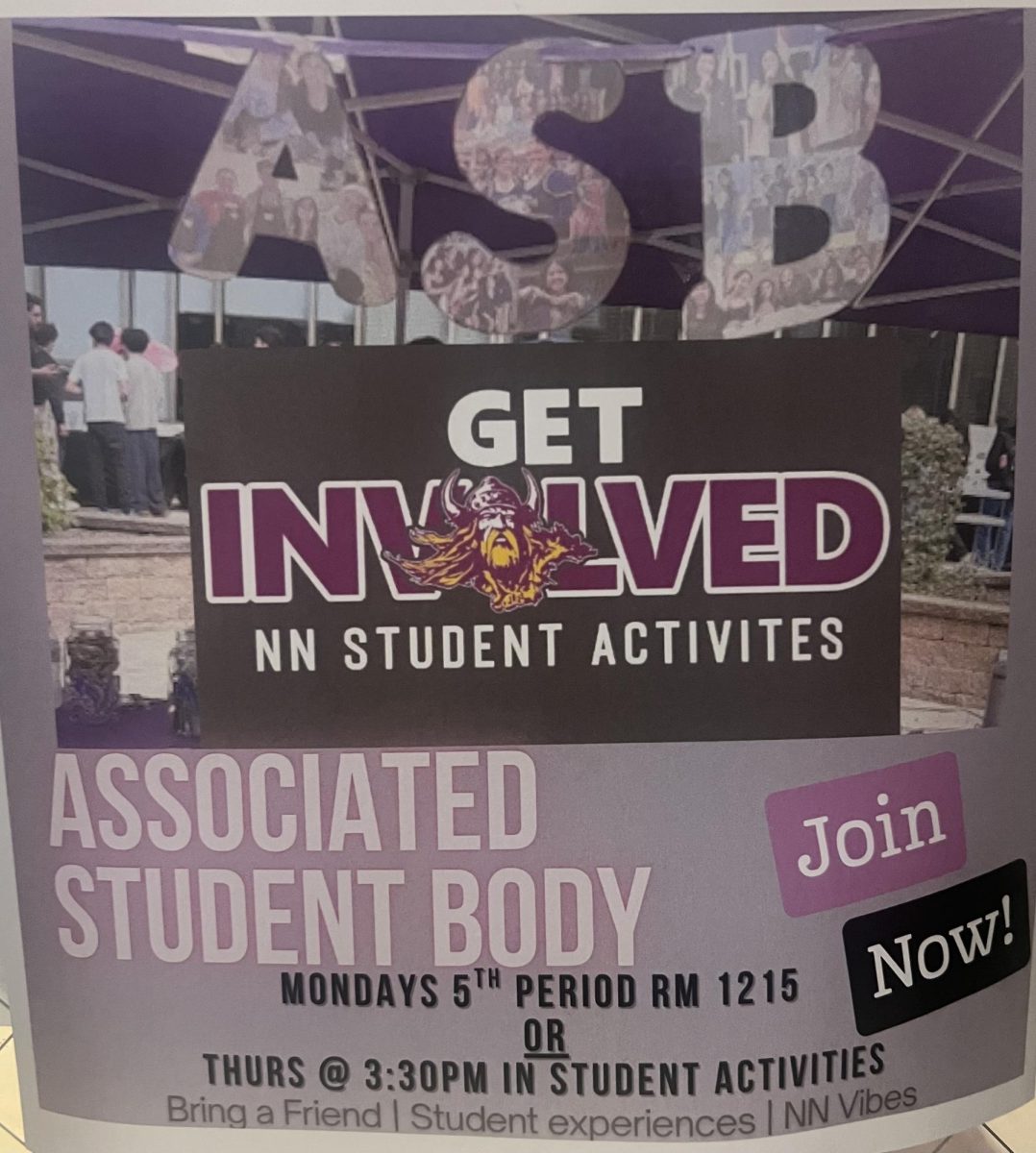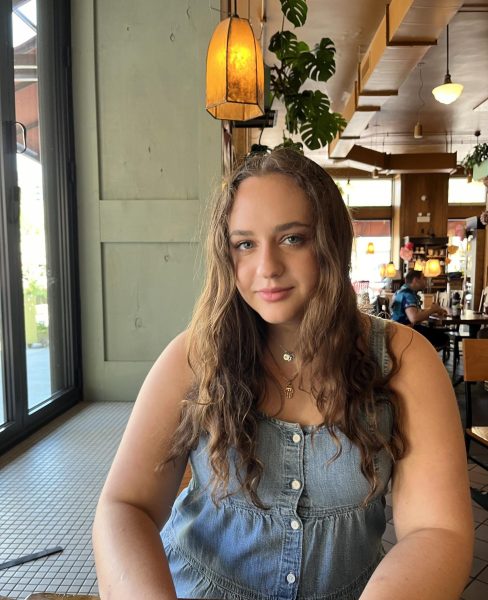Troy Bennett, Social Studies teacher
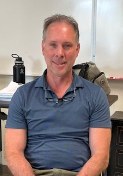
What key experiences growing up inspired you to pursue a career in education? To be honest with you, I’m sure there are high school teachers of mine who are rolling over in their graves, realizing that I’m a high school teacher. There was probably no sign that that was ever going to be the case. So, probably more of a surprise. I had a real job before I was a teacher, and I kinda got bored, pretty quickly, of it. I really, really liked history, I enjoyed that, and the sixteen-year-olds were…they were fresh. My students were fresh. They always give me a little bit of a chance. And they’re not boring. 16-year-olds are not boring. Sometimes they’re stupid, but they’re not boring. But generally speaking, they can be kind of fun.
What are you going to miss about working at Niles North? To be honest with you, the students. But there’s always ends. I mean, [at] the end of every school year, all of a sudden, I don’t have my students anymore. And so, you kinda move on. So it’s kind of a normal process. In the moment, nothing seems odd at this point. The only thing that seems odd is that I do things for the last time. My lecture on Teddy Roosevelt, I will never do again. And that makes me sad, but the idea of a school year ending–this is the way it’s always been. So it doesn’t feel abnormal, at the point.
What words of wisdom or advice would you give to aspiring teachers who seek to follow in your footsteps? I don’t know. I think to be good at this job, you have to have an eternal wellspring of hope. Every day, you have to think it’s gonna get a little bit better. The students are gonna listen a little bit more, their skills are gonna get a little bit better–you have to have hope. I wish there was some way you could bottle [hope] and give it to teachers. The happier a teacher is, the more hopeful a teacher is, the better they do their job, because it just exudes from them. You can’t walk in and hate your job and hate your subject and hate the students, and have a good day. So you have to hope. And you might have a [terrible] day on Monday, but that doesn’t mean Tuesday’s gonna be terrible. There’s a plus and a minus. For example, I’ll have an awesome lesson on Tuesday–I get no credit for it on Wednesday. My students could care less. It’s, what are you doing for me now? I could have the worst lesson on Tuesday, my students could care less. It’s, what are you gonna do for me now? So, I think my students give me 2 minutes. 2 minutes every day, and they decide at that point whether they’re going to engage, and listen, and try to get involved, or they’re gonna shut it down. But I get the 2 minutes. So hopefully, I try to grab that 2 minutes.
According to you, what has been the most rewarding benefit you’ve received while working in the education field? Oh, probably the relationships. I like my students. And the ones that don’t like me, that’s all fine. You know what I mean? But I genuinely [like them]. And I like the history–it grabs my attention. And I will work harder for my students than I would ever work for myself. And so I kind of feel like I want it to be better, I want it to be good. I’m doing a lecture for tomorrow, and it is the last lecture. And I have literally spent hours going over things. I did a portion of it last year and a portion of it the year before, so I’m bringing things together, but it’s amazing how much time and energy I’ll put in to try to get it just right. And sometimes I’ll scrap all the changes I’ve made. But it’s a creative process. It’s kind of fun.
Based on your perspective, what should the ideal education system look like in the 21st century? I’ve wanted for a decade to have a platform–a computer desktop, if you will, that has all my information on it. Rather than a PowerPoint that goes linear, which kind of sucks because if someone asks a question that’s gonna be answered in the 42nd slide, I’ll be like “Oh, wait a second.” And it sucks! So what I want is to have a platform where I can have slides of information, and I can have video files, and I can have sound files, and picture files, and so if someone asks a question, I have it all in front of me about this, and I can go “BOOM!” and it pops up. They haven’t done it yet. I’ve actually asked some tech people, “Is this possible?” And they’re like, “No! You can’t do that!” and I’m like, “But that’s what I want!” It would be so much nicer, because then, a lesson could be organic. You wouldn’t say, “Okay, we go from slide one to slide fifty.” It’s like, “Okay, here’s the topic, and we can bounce around,” and students would have questions and thoughts and ideas, and you could say, “Yes, I’ve got that! Boom!” versus “Wait ‘till I get to the slide.”
Tell us two truths and one lie about yourself.
- I’m very religious. I went on a mission for a year and a half. I knocked on doors and talked to people and proselytized. I’m currently responsible for about four hundred individuals in a congregation, up in Buffalo Grove. Me and two other men are the leaders of that congregation. I sit on a stand, and I do a variety of religious things.
- I’ve begun to grow plants, literally from seeds. So for the last five years, in my office, I’ve plant[ed] seeds in my office in little dirt cups. I’m about to actually transition them to outside. I’ve got tomato plants, and peppers, and a whole variety of things. And it’s kind of a very nerdy thing, but I grow vegetables that are gonna go in a garden, and I’ve become obsessed with gardening in my old age, because it’s a long-term thing. It’s not a quick fix–you have to plant, and you gotta do all this kind of stuff. It’s weird, because I have tomato plants–one that is 10 inches long, another that is 2 inches long–[planted at the] exact same time, exact same place, right next to each other, and it blows me away. Why does one do so well and one do so badly? So I’m sort of a quasi-gardening nerd, and will probably get more so in retirement.
- I play the guitar.
Todd Bowen, Language Director
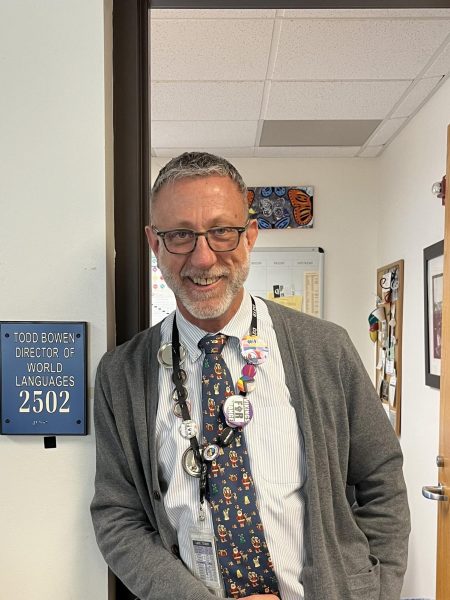
What key experiences growing up inspired you to pursue a career in education? My mom was an elementary school teacher so I always grew up with that in my life, having papers around and activities to do, and my mom working really, really hard. Lots of late hours. I grew up on a farm in Indiana. My dad never lived anywhere except that farm and so there was this huge change, that suddenly travel opportunities have become much more available and I was really intrigued to study French. That’s what I started out as– being a French English teacher and seeing what was new and different. I was just really attracted to that and had a good time. Learning and seeing things with different eyes as I was learning French and then really excited to go travel and study abroad when I was in college, really kind of opening the doors. I decided to go into education because I wanted to provide opportunities to open doors for other students to help them see things a little bit differently to change their mindset towards a more global more peaceful place.
What are you going to miss about working at Niles North? I’m going to miss working with people, I’m going to miss working with students. I’m going to miss the opportunity to impact people’s lives in that way. However, I am still going to be involved in the foreign language profession. I’m the executive director for the Illinois Council on the Teaching of Foreign Languages. So I’m gonna continue doing that. But just the day-to-day is going to change. That’s the thing that’s both exciting and a little scary.
What words of wisdom or advice would you give to aspiring teachers who seek to follow in your footsteps? Teaching is an extraordinarily rewarding activity because of the relationships you develop with students and how you’re able to show them new things, and help them grow. And in the world of language teaching discover a whole new world outside of what they currently experience. It’s not an easy job. It’s time intensive. It can be emotionally draining. But it is one of the most rewarding and I believe, morally fulfilling jobs that you can have. And that was one of the reasons I didn’t say that before. But that was one of the reasons I became a teacher was because I believed in the morality of helping other people, rather than going off to make a buck for myself on international business or serving the interests of somebody else.
Based on your perspective what should the ideal education system look like in the 21st century? Students are becoming more and more independent learners in things that they like and enjoy, not necessarily the things they have to do. So I would see a combination of school being support/mandatory sorts of activities, and then the ability to explore on their own and there be less groups of people moving as groups and more independent students moving as independent students. I’d love to see a system where students prove what they know and then move on to the next step. And not moving up keeping working on things until they really know them. And then once they know them, they can go on to grow and continue to do that if we were able to do that more independently, rather than being lockstep big blocks of people.
Tell us two truths and one lie about yourself.
- I have won both a state and national award as a French teacher.
- I have been in education for 39 years.
- I am fluent in 6 languages
Lisa Edelson, Community Relations
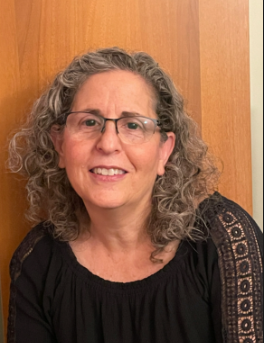
What key experiences growing up inspired you to pursue a career in education? I always enjoyed taking charge of coordinating many of the activities my friends and I would participate in. I joined different youth organizations and took on a variety of leadership roles. I did a lot of paid babysitting and volunteering while in middle school, and then had paid part time jobs during high school and college. I originally thought that I would go to college to become an elementary school teacher, but instead I took courses in career pathways that coincided with business and human services. I earned a Bachelor’s degree in Urban Planning & Environmental Science, and a Master’s degree in Corporate Employee Life & Benefits Programming. My adult jobs were in city planning, hotel hospitality and bookkeeping, business associations, and chambers of commerce. It wasn’t until 2000 that I circled back to education, but not as a teacher in the classroom. Instead my job encompassed connecting teens with the world of work.
What are you going to miss about working at Niles North? It’s always about the people, the human aspect. I’ve had the pleasure of working the past 24 years with hundreds of students, parents, teachers, administrators, support staff, community leaders and business professionals. Every connection made has helped me to better help our D219 students explore post high school career opportunities. I will miss making these connections as well as spending my work days with my awesome coworkers.
What words of wisdom or advice would you give to aspiring teachers who seek to follow in your footsteps? As I did not take the traditional teaching path, I still believe that I have been a teacher nonetheless. Whether it’s been helping business people or helping students to be successful, I believe that my desire to be a responsible and valued member of my personal and professional communities, my friendly demeanor, my ability to communicate with others while taking their concerns and situations into consideration, and my commitment to be a lifelong learner, have fueled my drive and determination. These traits and other attributes could be beneficial to any career, including teaching.
According to you, what has been the most rewarding benefit you’ve received while working in the education field? As one of the most vital industries in the world, I’ve found it exciting being a part of the ever changing educational landscape that has had and will continue to be a major influence and impact on our youth of today and tomorrow. The power of an educated workforce contributes to economic and societal stability, productivity and growth. We educators must be leaders for embracing change especially as technological innovations transform our everyday lives, and even when we’re taken by surprise during a worldwide pandemic.
Based on your perspective, what should the ideal education system look like in the 21st century? A safe learning environment that has numerous types of student-centered learning opportunities. A system that is interactive and relevant: values problem solving, critical thinking, hands-on active and engaging activities on and off campus incorporating real world experiences and different perspectives. A system that requires integration of career development into all core classes of English, Math, Science and Social Studies, or instead incorporates the core classes curriculum into the career pathway courses enhancing the relevance for the students.
Tell us two truths and one lie about yourself.
- I don’t like reality TV.
- I love roller coasters.
- I make awesome crab cakes.
Patty Ference, Student Services
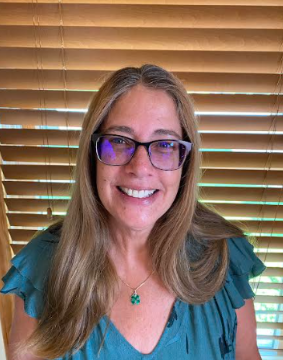
What key experiences growing up inspired you to pursue a career in education? Growing up, I just needed a job to pay my bills. What brought me to education was probably the flexibility of having the summers off and having young children at home. Once my children were older, an opportunity presented itself here to work at a high school year round.
What are you going to miss about working at Niles North? My colleagues and friends I’ve made along the way.
What words of wisdom or advice would you give to aspiring teachers who seek to follow in your footsteps? Make sure that you do get out of your office, take a daily walk.
According to you, what has been the most rewarding benefit you’ve received while working in the education field? I guess just the opportunity to work in this department, with counselors. in this department, you get to work with everybody, side by side, each day. We’re in a department where we can help the students who are seeking help, and it’s nice to see that sense of accomplishment. We work together.
Tell us two truths and one lie about yourself.
- I love the beach.
- I have two dogs.
- I like classical music.
Laura Jacobson Nejman, Spanish teacher
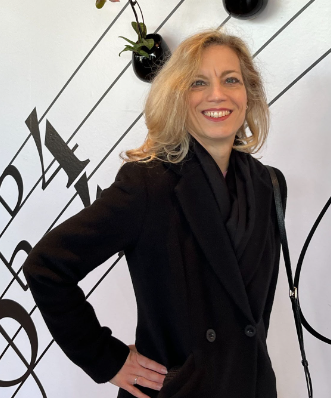
What key experiences growing up inspired you to pursue a career in education? My first Spanish teacher actually played a great role in [my decision to pursue a career in education]. She really inspired me and we kept in touch. She actually had reached out to me to have her for my first trip to Spain as a chaperone when I graduated high school. So at a very young age, I was a chaperone for a group of 8th graders with her and during that trip she let me go on my own for the first time. That’s why I was really eager to go back to the Prado museum and see certain things all by myself. I was pretty sheltered as a child so that was one of the first experiences that I had where I could go on my own and realize that I could use the [Spanish] language and talk to people. It was so inspiring. Like, “Wow, I could show other people how to do this.” So that was a really great experience, my Spanish teacher with languages. She inspired me that way. From an educational perspective, she showed me how I could learn. But I also was trained by a bunch of science teachers from the same school district I worked at where there was an observatory. They trained me and I worked there from the time I was 11 as an assistant. Then when I was 14 I got a special work permit and I became an assistant to the director until I became the director myself as a teacher. I was in a very special situation where I had some very special teachers that showed me how it’s important to show how students can learn and open up doors for students to see the world.
What are you going to miss about working at Niles North? I am definitely going to miss my students and colleagues. Throughout the years, I’ve had fantastic students and great colleagues. They’re like family. It’s not that I’m never going to see them again but just knowing that I won’t be seeing them on a daily basis will be weird. It will really be a different experience. I’ll miss that the most because anything in this life is [about] the people you’re with, whether it be family, friends, colleagues, or students.
What words of wisdom or advice would you give to aspiring teachers who seek to follow in your footsteps? Teaching is a calling. It’s definitely not an easy thing to do and I just think it’s so important that you share the knowledge you have and show future generations what you have. You are really trying to show the future how to survive, whether it be another language or a skill. My advice is to explore your field and explore your passion. Show that passion to others. Show what you love to others. It’s not always like work if it’s something you love. Don’t get discouraged if it doesn’t always work. If you’re showing somebody something, you just have to have a lot of patience. Just don’t give up, that’s the big thing. That’s the most important thing. Do what you love and share what you love.
According to you, what has been the most rewarding benefit you’ve received while working in the education field? I have been able to travel around the world. That’s the biggest benefit because I can meet other people all over the world. Knowing one language, sure you can communicate with people but when you know more than one language, it’s such a different experience. You really start to have a more empathetic understanding of people in the world and how they live. That’s the biggest thing. I’ve been to Spain 10 times, I’ve been to other countries too. I studied in Spain so that was a fantastic opportunity where I could complete my master’s degree and study there and live there. I went there every summer so I’ve been there over years’ worth of time. So the greatest benefit is that I’ve been able to see the world. Not just Spain, but I’ve been to Germany, Argentina, and Mexico. It just really opens up your world studying and having the benefit of teaching a world language.
Based on your perspective, what should the ideal education system look like in the 21st century? I would love for there to be less cell phones. Not that technology doesn’t have its place. I’m not like “No phones! No phones!”, but I’d like to see more experiential learning. If you’re always looking down at your phone, you aren’t seeing what is around you. When you’re doing experiential learning, hands-on types of things, you’re using the language or whatever it is you’re learning. You know, if it’s physics, you could be doing an internship. I really think education is going to change but my view would be a little more straightforward in the sense of where we’re really doing the work. Experiential learning is the best way of learning.
Tell us two truths and one lie about yourself.
- I learned to dance tango in Argentina with professionals.
- I was featured in a National Geographic book for astronomy when I was 13 years old.
- I have met Spanish chef and founder of World Central Kitchen José Andrés.
Jean Ordoñez, English teacher and Newspaper adviser
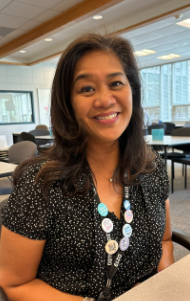
What key experiences growing up inspired you to pursue a career in education? I was the youngest of five kids and I was very curious. My older siblings always told me to look things up when I had a question. No matter who I went to, all they would say to me is look it up. So I did. The joy of learning something new is why I have a passion for wanting to teach because I’ve said this before, I don’t teach because I know everything I teach because I enjoy learning and showing other people how to learn.
What are you going to miss about working at Niles North? Elyana. The people, all my students, students who I don’t know but see in the building I try to smile at them all the time when I see them. The students in my classrooms, we have so many good experiences together just working as a team and learning new things together. I am going to miss the staff a lot. They’ve been my family for 33 years. so they’ve seen me throughout all my milestones in my life. And so I’m gonna miss them because they’re like my second family.
What words of wisdom or advice would you give to aspiring teachers who seek to follow in your footsteps? Be ready to protect your joy. Remind yourself, why are you a teacher in the first place, there are going to be so many frustrating times, but they’re also going to be wonderful times, and so just try to protect your joy.
According to you, what has been the most rewarding benefit you’ve received while working in the education field? Getting to learn about so many different people’s lives. I am astounded at how many students are so generous and kind and hardworking, they just come on a daily basis like that. As well as the staff. I’m just this girl from Iowa, right? And who knew that I would reap so many stories and touch so many words, get to know so many people’s lives and they got to know mine too. I don’t know how many other people can say that who are in different professions.
Based on your perspective, what should the ideal education system look like in the 21st century? There should be a vast array of opportunities for all students. A good school is not only a school that offers AP level classes, we should also be offering a lot of our art classes and music classes and cooking classes and childcare classes, and every type of class that should be allowed for any type of student. I think that a good school also should foster all sorts of issues that students are facing as well. I think that a student should be able to go to all of their adults in the building, a security guard, a teacher, a counselor, a principal, they should be able to go with a problem, right? Also there should be more support for the staff since they take on so much more than just educating students.
Tell us two truths and one lie about yourself.
- I was in a band and we were voted best rock group two years in a row
- I have jumped out an airplane
- I have been to the Philippines four times
Andrew Swedberg, Student Services

What key experiences growing up inspired you to pursue a career in education? Having George Primo as a math teacher at Niles North High School.
What are you going to miss about working at Niles North? Watching students grow through there for years and seeing the changes; mostly good changes.
What words of wisdom or advice would you give to aspiring teachers who seek to follow in your footsteps? It’s been a rewarding career. It is hard to put into words how much you’ll get out of the profession.
According to you what has been the most rewarding benefit you’ve received while working in the education field? I would say either watching the students grow throughout any particular school year or seeing students reaping the benefits of the hard work they put in throughout their four years.
Based on your perspective, what should the ideal education system look like in the 21st century? I would say the ideal education system is one that affords students every opportunity but holds them accountable for their actions. I think that there’s got to be some accountability built in because I see things slipping through the cracks in terms of student effort and student buy-in in education. I think we need to come up with an environment that rewards effort and rewards accountability, making sure that students realize that what they’re doing today is going to impact them tomorrow.
Tell us two truths and one lie about yourself.
- I graduated from Niles North in 1982.
- I was a member of the varsity basketball team here.
- I played in the NBA with Michael Jordan and Scottie Pippen.
Mark Pace, Science teacher
What key experiences growing up inspired you to pursue a career in education? I was privileged to have some incredible coaches and teachers who inspired me to become a teacher and a coach.
What are you going to miss about working at Niles North? The people.
What words of wisdom or advice would you give to aspiring teachers who seek to follow in your footsteps? Be yourself, work hard, and be patient.
According to you, what has been the most rewarding benefit you’ve received while working in the education field? Working with and teaching incredible people.
Based on your perspective, what should the ideal education system look like in the 21st century? That is going to be up to the new educators to decide.
Tell us two truths and one lie about yourself.
- I played on a national championship football team in college.
- My boys and I camped once a month (year-round) for 12 years in a row with the Boy Scouts.
- I once met and shook hands with former President Jimmy Carter.
Maggie Relihan-Hantel, Secretary of Dean’s Office

How did you end up working here as the secretary of the dean’s office?
I used to work for Quaker Oats as a product manager for 20 years and then we adopted a little boy so I had to stay at home for the longest. My son started the first grade and I was bored out of my mind and my sister was a coordinator here so I started subbing. I saw there was an opening for the deans office and I got the job.
What are you most looking forward to after retirement?
Being able to work on my crafting. I do paper crafting like scrap booking and journal making. I’m looking forward to doing it during the day because I usually do it after work and I just don’t have the energy anymore.
What’s your favorite thing about the Niles North environment?
I like how friendly everybody is. I love working with my deans, I think they’re very professional, funny, and they all have giant hearts. I think you have to have a lot of compassion to be a dean and I personally love it here because I love the students. I love dealing with the kids.
What are some of your strengths and weaknesses? I’m a very good communicator, I know how to easily read a room. I know the minute the door is open, what’s coming in so I’m able to talk a parent off the ceiling off the phone before it has to go to the dean. I’m very good at making people smile. My weakness is that I’m too trusting. I’ll put my trust in somebody and they’ll turn around and show me that I shouldn’t have said anything.
What’s your favorite thing about working with children? The reason that I like working with the kids is because [they] are going through a lot and I try to show [them] a nice side. If someone’s upset or in a bad mood, I tell them that they should take a breath and calm down. I try to make sure that the kids get what they need when they come in here whether that be talking to a dean or chilling out, I can help with that right away. I know how to facilitate moving the kids around without asking a dean for anything and I think that’s probably because I had a professional career in the past. I was always a manager, so I know how to manage.
Lee Milano
Congratulations on your retirement!


